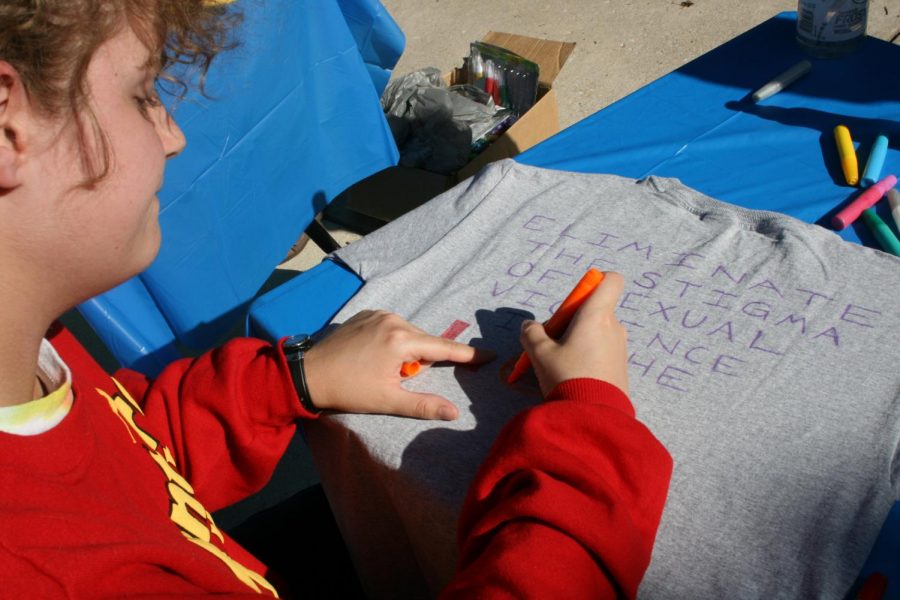Women’s health class advocates for sexual assault survivors
Students, including Nicole Newell, a second-year engineering student, held the event on the Quad.
October 15, 2019
A women’s health class raised awareness Tuesday for sexual assault survivors while providing resources for those in need during the Clothesline Project Visual Display.
Professor Caree Oslislo’s HEA-113 class organized the display.
Oslislo explained, “The Clothesline project is a national initiative that seeks to bring awareness to the issues related to interpersonal violence, domestic violence, child abuse, sexual assault. … People make a t-shirt that either shares their story or shows their supports for survivors of domestic violence.”
The display featured a kiosk where attendees could make their own shirt with a personalized message to be hung on clotheslines at the event.
“We made all these posters and information just to raise awareness about domestic violence, and some of these t-shirts are made in honor of people who have survived domestic violence,” third-year studio arts student Erica Romero said. “Some of them are made … by people who are survivors … of domestic violence, some of them are just words of peace and encouragement to survivors of domestic violence.”
Oslislo explained why her class organized the event. “This is a women’s health class, so it’s an issue or a concern that is really important for women and men to be aware of.”
“The main goal is awareness,” Nicole Newell, a second-year engineering student said. “People don’t really talk about sexual assault … just because it’s not a fun thing to talk about. But if it’s part of somebody’s reality I think it’s important to make sure everybody’s thinking about it, even if it’s one day every year.”
Oslislo said those who know survivors should reach out.
“If you meet or know somebody who is a survivor let them know that you believe them and share resources where they might get help,” Oslislo said.












